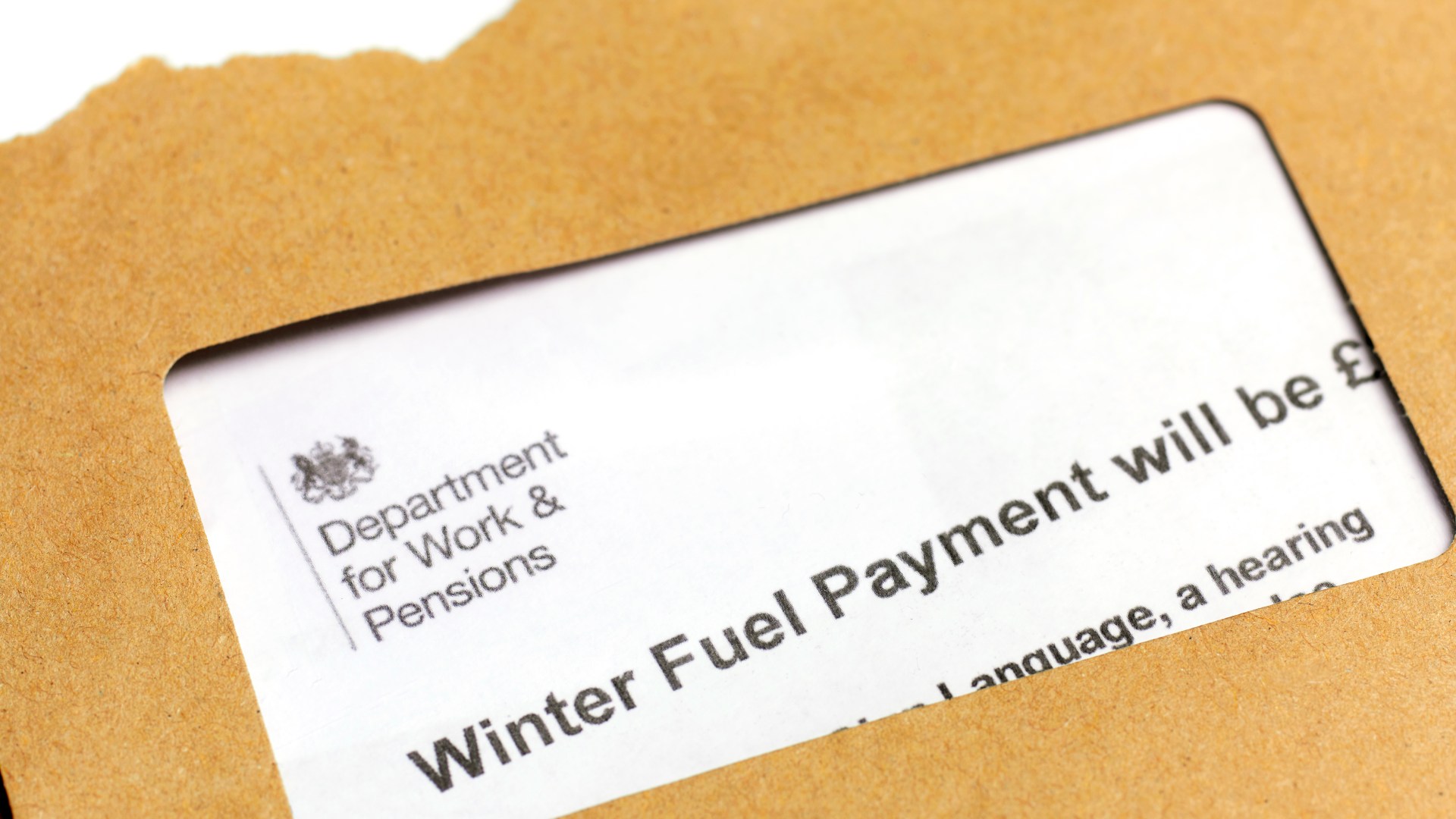Money
Royal London chair Parry resigns


Royal London chairman Kevin Parry has announced his resignation.
Parry has informed the mutual that he does not wish to serve beyond this year and the board said it has therefore accepted his resignation in line with his notice period.
Current deputy chair Lynne Peacock will take on his responsibilities as interim chair, with immediate effect.
One of her first actions will be initiating and overseeing a search for a new chair with the support of the board.
Parry said: “It has been a privilege to chair Britain’s leading mutual insurance and asset management group.
“The group needs to continue to develop its strategy to take advantage of market opportunities for growth across its insurance and asset management businesses for the benefit of our members.
“That requires leadership from a chair who can commit to a medium-term tenure of five or so years which is not available to me.
“I am grateful to Lynne for agreeing to take on the interim chair role while my successor is identified.
“I wish all my colleagues and our members the very best for the future success of Royal London.”
Peacock said: “On behalf of the board, I would like to thank Kevin for his advice and guidance in leading the strategic development of Royal London over the time of his tenure and wish him all the best in his next ventures.
“Personally, I have known Kevin for many years and whilst I know that we will all miss him, we understand the reasons for his decision.”
Money
Nido Living appoints new CFO ahead of expansion

As CFO, Ryan Lee will work closely with chief executive Carlo Matta, and chief operating officer Darren Gardner.
The post Nido Living appoints new CFO ahead of expansion appeared first on Property Week.
Money
Fighting for stability in a sea of speculation


In a world of constant tax policy changes, I find myself inundated with queries from clients increasingly worried about how to plan for their future with confidence.
The most significant talking point at the moment is chancellor Rachel Reeves’ first Budget, due at the end of the month.
Year after year, governments introduce new policies affecting pensions, tax allowances and other frameworks.
These continuous adjustments create uncertainty and make it hard for clients to feel secure in their long-term financial plans.
The constant media speculation just amplifies this anxiety, and it’s happening much more frequently.
For example, in June, prime minister Keir Starmer made a misstatement regarding tax-free cash reductions, which was corrected by the Labour PR machine just hours later.
Headlines that Reeves was being “urged” to reduce tax-free cash do not tell the whole story
The media had already jumped on the story, however, exacerbating concern.
Missteps like this are unfortunate but the 24/7 nature of the media has made the situation worse.
Reporting on opinion from organisations like the Institute for Fiscal Studies just fuels the fire, as seen recently following its suggestion pension tax-free cash may no longer be sustainable.
Headlines that Reeves was being “urged” to reduce tax-free cash do not tell the whole story.
The speculation has led some clients to consider withdrawing their tax-free cash early from a pension regime, despite it not being in their best interest, simply to seek stability.
I’m sure many advisers routinely deal with these sorts of panicked queries.
While politicians and media speculate, we play a key role in providing stability
Many clients, especially those nearing retirement, have felt unsettled about a new left-leaning government, which may not necessarily align with their political views.
Speculative news stories about changes to tax-free cash, inheritance tax (IHT) or even the introduction of a wealth tax are enough to cause panic.
As an adviser, I cannot say such things won’t happen, but I do explain I believe changes as monumental as a wealth tax or even altering IHT (largely unchanged for 40 years) would likely take years to introduce, if they ever happen at all.
Clients begin to wonder if they should act pre-emptively. But it’s important to remind them that even if certain policy changes, like IHT on pensions, were known, the advice might not change.
Short-term revenue gains from frequent changes undermine this goal
Advisers understand not every political shift or proposed tax change will have a direct impact on a client’s long-term goals, and it’s critical to stay focused on the bigger picture.
While politicians and media might speculate, we play a key role in providing stability.
We may not always feel it, but I believe we can nudge policy in the right direction by participating in discussions with institutions like HM Revenue & Customs or the Treasury and through consultation papers.
For instance, the Finance Act at the end of the last tax year abolished the lifetime allowance.
While then-chancellor Jeremy Hunt made the initial decision, input from industry professionals, including myself, helped tweak and adjust the legislation, which could have been worse due to HMRC’s misunderstanding of its implications.
The speculation has led some to consider withdrawing their tax-free cash early, despite it not being in their best interest
That said, amendments to the legislation are still needed.
Our voices need to be heard to ensure policies are crafted with long-term benefits in mind.
Since pension “simplification” in 2006, there have been dozens of other significant changes. This constant tinkering has eroded confidence in pensions for many people. A lack of confidence can leave future generations poorer and more reliant on government support, which could create even bigger problems.
Ultimately, governments should focus on creating stability in tax policies and encouraging people to save for the long term.
Short-term revenue gains from frequent changes undermine this goal. While advisers will continue to help clients stay grounded, a more consistent, thoughtful approach from the government is needed.
Alistair Cunningham is financial planning director at Wingate Financial Plan
Money
Key Winter Fuel Payment dates explained including final deadline to apply and when payments land in bank accounts

STRUGGLING pensioners can now start to apply for up to £300 of cash handed out through the Winter Fuel Payment.
Most households do not need to apply and will automatically be paid the cash.
However, a select group of people who are eligible need to apply in order to get the benefit.
If you live in England or Wales and were born before 23 September 1958, you will automatically receive the Winter Fuel Payment if you receive any of the following benefits:
- Pension Credit
- Universal Credit
- Income Support
- income-related Employment and Support Allowance (ESA)
- income-based Jobseeker’s Allowance (JSA)
- Child Tax Credit
- Working Tax Credit
However, anyone who lives abroad and qualifies for the Winter Fuel Payment will need to apply for it.
Read more Winter Fuel Payment
You can qualify if you live abroad in certain countries and the following conditions apply:
- You moved to the eligible country before January 1, 2021
- You were born before September 23, 1958
- You have a genuine and sufficient link to the UK – this can include having lived or worked in the UK and having family in the UK
You will need to claim Winter Fuel Payment even if you have got it before. The payment is not made automatically when you live abroad.
The eligible countries you can live in and claim are:
- Austria
- Belgium
- Bulgaria
- Croatia
- Czech Republic
- Denmark
- Estonia
- Finland
- Germany
- Hungary
- Iceland
- Ireland
- Italy
- Latvia
- Liechtenstein
- Lithuania
- Luxembourg
- Netherlands
- Norway
- Poland
- Romania
- Slovakia
- Slovenia
- Sweden
- Switzerland
Postal applications
Anyone living abroad and looking to apply households can now apply via post. You need to fill in the winter fuel payment claim form and post it to the Winter Fuel Payment Centre.
The form is available at gov.uk/winter-fuel-payment/how-to-claim.
The address to post to is:
Winter Fuel Payment Centre
Mail Handling Site A
Wolverhampton
WV98 1ZU
UK
Phone applications
You can also apply for the benefit by phone but not until October 28.
If you think you qualify and want to make an application this way, make a calendar note in your phone.
You will need to phone the Winter Fuel Payment Centre on +44 (0)191 218 7777.
When will the Winter Fuel Payment be made?
Most payments are made automatically in November or December.
If you qualify, you’ll get a letter telling you:
- How much you’ll get
- Which bank account it will be paid into
Payments are £200 for eligible households or £300 for eligible households where someone is aged over 80.
Deadline for claims
If you do not get a letter or the money has not been paid into your account by January 29, 2025, contact the Winter Fuel Payment Centre.
The deadline for you to make a claim for winter 2024 to 2025 is 31 March 2025.
Applying for Pension Credit
You will qualify for the Winter Fuel Payment if you qualify for selected means-tested benefits, most notably Pension Credit.
Hundreds of thousands of households are eligible for this benefit but aren’t claiming and are now set to miss out on the Winter Fuel Payment as a result.
You will need to have been claiming Pension Credit in the ‘qualifying week’ of 16 to 22 September 2024.
However, claims can be backdated by three months meaning you have until December 21 to make a claim and still get the Winter Fuel Payment.
Pension Credit tops up your weekly income to £218.15 if you are single or to £332.95 if you have a partner.
If your income is lower than this, you’re very likely to be eligible for the benefit.
However, if your income is slightly higher, you might still be eligible for pension credit if you have a disability, you care for someone, you have savings or you have housing costs.
You could get an extra £81.50 a week if you have a disability or claim any of the following:
- Attendance allowance
- The middle or highest rate from the care component of disability living allowance (DLA)
- The daily living component of personal independence payment (PIP)
- Armed Forces independence payment
- The daily living component of adult disability payment (ADP) at the standard or enhanced rate.
You could get the “savings credit” part of pension credit if both of the following apply:
- You reached State Pension age before April 6, 2016
- You saved some money for retirement, for example, in a personal or workplace pension
This part of the pension credit is worth £17.01 for single people or £19.04 for couples.
Crucial to claim Pension Credit if you can
HUNDREDS of thousands of pensioners are missing out on Pension Credit.
The Sun’s Assistant Consumer Editor Lana Clements explains why it’s imperative to apply for the benefit..
Pension Credit is designed to top up the income of the UK’s poorest pensioners.
In itself the payment is a vital lifeline for older people with little income.
It will take weekly income up to to £218.15 if you’re single or joint income to £332.95.
Yet, an estimated 800,000 don’t claim this support. Not only are they missing on this cash, but far more extra support that is unlocked when claiming Pension Credit.
With the winter fuel payment – worth up to £300 now being restricted to pensioners claiming Pension Credit – it’s more important than ever to claim the benefit if you can.
Pension Credit also opens up help with housing costs, council tax or heating bills and even a free TV licence if you are 75 or older.
All this extra support can make a huge difference to the quality of life for a struggling pensioner.
It’s not difficult to apply for Pension Credit, you can do it up to four months before you reach state pension age through the government website or by calling 0800 99 1234.
You’ll just need your National Insurance number, as well as information about income, savings and investments.
Money
Hammerson prices 12-year £400m bond issue

The proceeds will support its growth strategy and refinance debt on bonds due to mature next year and up until 2028.
The post Hammerson prices 12-year £400m bond issue appeared first on Property Week.
Money
Abrdn Adviser hires chief technology and product officer


Abrdn Adviser has today (3 October) announced the appointment of Derek Smith to the newly created role of chief technology & product officer.
The CTPO role will bring together Abrdn Adviser’s technology and product teams.
Smith will be responsible for executing the technology strategy and ensuring the continuous enhancement and scalability of the Abrdn Adviser business.
He will join in November from Morningstar Wealth, where he is currently chief technology officer, a role he has held for the past two years.
His previous roles include head of engineering at Virgin Money and Lloyds Banking Group.
Smith’s appointment follows a busy few weeks on the recruitment front for Abrdn Adviser.
Last month, it announced that industry veteran Verona Kenny will join as chief distribution officer and Louise Williams as chief financial officer.
Abrdn Adviser CEO, Noel Butwell, said: “Our ambition is to deliver a market-leading proposition with exceptional client service and we’ve set out to create the best senior leadership team in the market to achieve this.
“Technology is a critical enabler in realising our goals and aligning to continuously evolving customer needs, and Derek brings a wealth of experience to the role of chief technology & product officer.
“He will lead the implementation of our strategy and next phases of platform upgrades as we embark on our next stage of growth and evolution during a period of disruption and digital transformation in the market.”
Smith added: “I am thrilled to join Abrdn Adviser at such a pivotal time.
“My passion lies in leading the creation of innovative digital solutions and journeys that empower financial advisers to deliver high-quality, personalised service to their clients.
“Together, we will build solutions with service excellence and interconnectivity at their heart, supporting advisers to navigate and thrive in the ever-evolving financial landscape with confidence.”
Money
Warning to self-employed homeowners as lenders make major change to mortgage rules in days

SELF-employed workers have been urged to submit their tax returns now if they are looking to move home in the coming weeks or months.
From October 5, the majority of mortgage lenders will ask for 2023/24 tax returns as proof of earnings.
HMRC doesn’t require the 23/34 year’s tax return to be submitted until the end of January 2025, meaning that many workers will not have yet completed it.
“Lenders see documentation over 18 months old as too historic to accept,” said Chris Sykes, technical director at mortgage broker Private Finance.
This means that anything relating to the end of the tax year April 5 2022/23 becomes out of date from October 5,
Chris said self-employed borrowers get caught out by this every year as the date isn’t advertised by lenders.
He added: “This will affect any self employed borrower looking to buy their first home, move house or remortgage over the next few months.
“Unlike an employed borrower just on a salary, a new year’s self employment figures can significantly change the borrowing upwards or downwards.”
Nicholas Mendes, technical manager at broker John Charcol agreed that this is a big issue for self-employed borrowers and they often oly become aware when starting the mortgage application process which can then create delays.
He said: “We see this issue arise quite frequently with self-employed clients—many are unaware that, even though HMRC gives them until January 2025 to file their 2023/2024 tax returns, lenders may not accept their older 2022/2023 tax returns after October 5 of this year.
“This mismatch in timelines often catches applicants off guard, leading to unexpected delays or issues in securing a mortgage.
“It’s a significant challenge because while the HMRC deadlines are designed to be lenient, lenders operate on much tighter expectations regarding financial documentation.”
If you can’t submit your tax return until later in the year, self-employed borrowers need to race against the clock to get a mortgage application in before lenders start rejecting their 2022/23 return.
Chris said there are some exceptions as a few lenders have a slightly longer window – but these are usually specialist lenders.
Specialist lenders often charge higher rates than mainstream lenders which means borrowers could end up paying more for their mortgage than they would otherwise.
The deadline for registering for a tax return for the first time for the 2023/34 year is also October 5.
There’s no penalty for registering after this, but if you haven’t signed up, filed your tax return, and paid your bill by January 31 you will be fined.
How to get a mortgage when you’re self-employed
Self-employed people can sometimes find it harder to get a mortgage as income can be more changeable than when you’re employed.
You will usually need at least two years of accounts and lenders will use these figures when deciding how big the mortgage offer will be.
Chris added: “We more often than not find self employed people don’t understand how a lender will look at their income, many think they are judged on their turnover when they are judged on their profit.”
Lenders may want to see more evidence of your income since you don’t have an employer to back you up.
This means all your accounts will need to be in order. It can be worth using an accountant if you don’t already to help you do this.
Lenders like to see consistent profits, and consistent earnings levels where possible. If there are fluctuations it needs to be understood why that is the case.
Keeping your financial documentation up to date can significantly increase your chances of a smooth mortgage application process and help avoid unnecessary stress or delays.
An independent mortgage broker can help advise on the process and give you an idea of any additional documentation you may need to get your application through.
In some cases, self-employed workers might find they need a bigger deposit and a strong credit score to get a home loan.
How to get the best deal on your mortgage
IF you’re looking for a traditional type of mortgage, getting the best rates depends entirely on what’s available at any given time.
There are several ways to land the best deal.
Usually the larger the deposit you have the lower the rate you can get.
If you’re remortgaging and your loan-to-value ratio (LTV) has changed, you’ll get access to better rates than before.
Your LTV will go down if your outstanding mortgage is lower and/or your home’s value is higher.
A change to your credit score or a better salary could also help you access better rates.
And if you’re nearing the end of a fixed deal soon it’s worth looking for new deals now.
You can lock in current deals sometimes up to six months before your current deal ends.
Leaving a fixed deal early will usually come with an early exit fee, so you want to avoid this extra cost.
But depending on the cost and how much you could save by switching versus sticking, it could be worth paying to leave the deal – but compare the costs first.
To find the best deal use a mortgage comparison tool to see what’s available.
You can also go to a mortgage broker who can compare a much larger range of deals for you.
Some will charge an extra fee but there are plenty who give advice for free and get paid only on commission from the lender.
You’ll also need to factor in fees for the mortgage, though some have no fees at all.
You can add the fee – sometimes more than £1,000 – to the cost of the mortgage, but be aware that means you’ll pay interest on it and so will cost more in the long term.
You can use a mortgage calculator to see how much you could borrow.
Remember you’ll have to pass the lender’s strict eligibility criteria too, which will include affordability checks and looking at your credit file.
You may also need to provide documents such as utility bills, proof of benefits, your last three month’s payslips, passports and bank statements.
-

 Womens Workouts1 week ago
Womens Workouts1 week ago3 Day Full Body Women’s Dumbbell Only Workout
-

 Technology2 weeks ago
Technology2 weeks agoWould-be reality TV contestants ‘not looking real’
-

 Science & Environment2 weeks ago
Science & Environment2 weeks agoHow to unsnarl a tangle of threads, according to physics
-

 Science & Environment2 weeks ago
Science & Environment2 weeks agoMaxwell’s demon charges quantum batteries inside of a quantum computer
-

 Science & Environment2 weeks ago
Science & Environment2 weeks agoHyperelastic gel is one of the stretchiest materials known to science
-

 Science & Environment2 weeks ago
Science & Environment2 weeks ago‘Running of the bulls’ festival crowds move like charged particles
-

 News2 weeks ago
News2 weeks agoOur millionaire neighbour blocks us from using public footpath & screams at us in street.. it’s like living in a WARZONE – WordupNews
-

 Science & Environment2 weeks ago
Science & Environment2 weeks agoHow to wrap your mind around the real multiverse
-

 Science & Environment2 weeks ago
Science & Environment2 weeks agoLiquid crystals could improve quantum communication devices
-

 Science & Environment2 weeks ago
Science & Environment2 weeks agoSunlight-trapping device can generate temperatures over 1000°C
-

 Science & Environment2 weeks ago
Science & Environment2 weeks agoITER: Is the world’s biggest fusion experiment dead after new delay to 2035?
-

 Science & Environment2 weeks ago
Science & Environment2 weeks agoPhysicists are grappling with their own reproducibility crisis
-

 Science & Environment2 weeks ago
Science & Environment2 weeks agoQuantum ‘supersolid’ matter stirred using magnets
-

 News2 weeks ago
News2 weeks agoYou’re a Hypocrite, And So Am I
-

 Science & Environment2 weeks ago
Science & Environment2 weeks agoWhy this is a golden age for life to thrive across the universe
-

 Science & Environment2 weeks ago
Science & Environment2 weeks agoQuantum forces used to automatically assemble tiny device
-

 Sport2 weeks ago
Sport2 weeks agoJoshua vs Dubois: Chris Eubank Jr says ‘AJ’ could beat Tyson Fury and any other heavyweight in the world
-

 Science & Environment2 weeks ago
Science & Environment2 weeks agoCaroline Ellison aims to duck prison sentence for role in FTX collapse
-

 Science & Environment2 weeks ago
Science & Environment2 weeks agoNuclear fusion experiment overcomes two key operating hurdles
-

 Science & Environment2 weeks ago
Science & Environment2 weeks agoTime travel sci-fi novel is a rip-roaringly good thought experiment
-

 Science & Environment2 weeks ago
Science & Environment2 weeks agoLaser helps turn an electron into a coil of mass and charge
-

 Science & Environment2 weeks ago
Science & Environment2 weeks agoNerve fibres in the brain could generate quantum entanglement
-
News2 weeks ago
the pick of new debut fiction
-

 News2 weeks ago
News2 weeks agoIsrael strikes Lebanese targets as Hizbollah chief warns of ‘red lines’ crossed
-

 CryptoCurrency2 weeks ago
CryptoCurrency2 weeks agoCardano founder to meet Argentina president Javier Milei
-

 Science & Environment2 weeks ago
Science & Environment2 weeks agoMeet the world's first female male model | 7.30
-

 Womens Workouts2 weeks ago
Womens Workouts2 weeks agoBest Exercises if You Want to Build a Great Physique
-

 News2 weeks ago
News2 weeks agoWhy Is Everyone Excited About These Smart Insoles?
-
Business2 weeks ago
JPMorgan in talks to take over Apple credit card from Goldman Sachs
-

 Science & Environment2 weeks ago
Science & Environment2 weeks agoA slight curve helps rocks make the biggest splash
-

 News2 weeks ago
News2 weeks ago▶️ Media Bias: How They Spin Attack on Hezbollah and Ignore the Reality
-

 Science & Environment2 weeks ago
Science & Environment2 weeks agoQuantum time travel: The experiment to ‘send a particle into the past’
-

 Science & Environment2 weeks ago
Science & Environment2 weeks agoA new kind of experiment at the Large Hadron Collider could unravel quantum reality
-

 Science & Environment2 weeks ago
Science & Environment2 weeks agoWhy we need to invoke philosophy to judge bizarre concepts in science
-

 CryptoCurrency2 weeks ago
CryptoCurrency2 weeks agoBitcoin miners steamrolled after electricity thefts, exchange ‘closure’ scam: Asia Express
-

 CryptoCurrency2 weeks ago
CryptoCurrency2 weeks agoDorsey’s ‘marketplace of algorithms’ could fix social media… so why hasn’t it?
-

 CryptoCurrency2 weeks ago
CryptoCurrency2 weeks agoDZ Bank partners with Boerse Stuttgart for crypto trading
-

 CryptoCurrency2 weeks ago
CryptoCurrency2 weeks agoBitcoin bulls target $64K BTC price hurdle as US stocks eye new record
-

 CryptoCurrency2 weeks ago
CryptoCurrency2 weeks agoLow users, sex predators kill Korean metaverses, 3AC sues Terra: Asia Express
-

 CryptoCurrency2 weeks ago
CryptoCurrency2 weeks agoEthereum is a 'contrarian bet' into 2025, says Bitwise exec
-

 Womens Workouts2 weeks ago
Womens Workouts2 weeks agoEverything a Beginner Needs to Know About Squatting
-

 News2 weeks ago
News2 weeks agoFour dead & 18 injured in horror mass shooting with victims ‘caught in crossfire’ as cops hunt multiple gunmen
-

 Womens Workouts1 week ago
Womens Workouts1 week ago3 Day Full Body Toning Workout for Women
-

 Travel1 week ago
Travel1 week agoDelta signs codeshare agreement with SAS
-

 Politics1 week ago
Politics1 week agoHope, finally? Keir Starmer’s first conference in power – podcast | News
-

 Technology5 days ago
Technology5 days ago‘From a toaster to a server’: UK startup promises 5x ‘speed up without changing a line of code’ as it plans to take on Nvidia, AMD in the generative AI battlefield
-

 Health & fitness2 weeks ago
Health & fitness2 weeks agoThe maps that could hold the secret to curing cancer
-

 Science & Environment2 weeks ago
Science & Environment2 weeks agoFuture of fusion: How the UK’s JET reactor paved the way for ITER
-

 CryptoCurrency2 weeks ago
CryptoCurrency2 weeks agoRedStone integrates first oracle price feeds on TON blockchain
-

 Sport2 weeks ago
Sport2 weeks agoUFC Edmonton fight card revealed, including Brandon Moreno vs. Amir Albazi headliner
-

 CryptoCurrency2 weeks ago
CryptoCurrency2 weeks agoBlockdaemon mulls 2026 IPO: Report
-

 Technology2 weeks ago
Technology2 weeks agoiPhone 15 Pro Max Camera Review: Depth and Reach
-

 News2 weeks ago
News2 weeks agoBrian Tyree Henry on voicing young Megatron, his love for villain roles
-

 CryptoCurrency2 weeks ago
CryptoCurrency2 weeks agoCoinbase’s cbBTC surges to third-largest wrapped BTC token in just one week
-

 Servers computers1 week ago
Servers computers1 week agoWhat are the benefits of Blade servers compared to rack servers?
-

 Health & fitness2 weeks ago
Health & fitness2 weeks agoThe secret to a six pack – and how to keep your washboard abs in 2022
-

 Science & Environment2 weeks ago
Science & Environment2 weeks agoBeing in two places at once could make a quantum battery charge faster
-

 Science & Environment2 weeks ago
Science & Environment2 weeks agoHow one theory ties together everything we know about the universe
-

 Science & Environment2 weeks ago
Science & Environment2 weeks agoUK spurns European invitation to join ITER nuclear fusion project
-

 Science & Environment2 weeks ago
Science & Environment2 weeks agoHow do you recycle a nuclear fusion reactor? We’re about to find out
-

 Science & Environment2 weeks ago
Science & Environment2 weeks agoTiny magnet could help measure gravity on the quantum scale
-

 CryptoCurrency2 weeks ago
CryptoCurrency2 weeks agoCrypto scammers orchestrate massive hack on X but barely made $8K
-

 CryptoCurrency2 weeks ago
CryptoCurrency2 weeks agoTelegram bot Banana Gun’s users drained of over $1.9M
-

 CryptoCurrency2 weeks ago
CryptoCurrency2 weeks agoVonMises bought 60 CryptoPunks in a month before the price spiked: NFT Collector
-

 CryptoCurrency2 weeks ago
CryptoCurrency2 weeks ago‘No matter how bad it gets, there’s a lot going on with NFTs’: 24 Hours of Art, NFT Creator
-

 CryptoCurrency2 weeks ago
CryptoCurrency2 weeks agoSEC asks court for four months to produce documents for Coinbase
-
Business2 weeks ago
How Labour donor’s largesse tarnished government’s squeaky clean image
-

 News2 weeks ago
News2 weeks agoBrian Tyree Henry on voicing young Megatron, his love for villain roles
-

 Womens Workouts2 weeks ago
Womens Workouts2 weeks agoHow Heat Affects Your Body During Exercise
-

 Womens Workouts2 weeks ago
Womens Workouts2 weeks agoKeep Your Goals on Track This Season
-

 Science & Environment2 weeks ago
Science & Environment2 weeks agoCNN TÜRK – 🔴 Canlı Yayın ᴴᴰ – Canlı TV izle
-

 Technology1 week ago
Technology1 week agoRobo-tuna reveals how foldable fins help the speedy fish manoeuvre
-

 Science & Environment1 week ago
Science & Environment1 week agoX-rays reveal half-billion-year-old insect ancestor
-

 Politics2 weeks ago
Politics2 weeks agoTrump says he will meet with Indian Prime Minister Narendra Modi next week
-

 Science & Environment2 weeks ago
Science & Environment2 weeks agoA tale of two mysteries: ghostly neutrinos and the proton decay puzzle
-

 News2 weeks ago
News2 weeks agoChurch same-sex split affecting bishop appointments
-

 Technology2 weeks ago
Technology2 weeks agoFivetran targets data security by adding Hybrid Deployment
-

 CryptoCurrency2 weeks ago
CryptoCurrency2 weeks agoLouisiana takes first crypto payment over Bitcoin Lightning
-

 CryptoCurrency2 weeks ago
CryptoCurrency2 weeks ago$12.1M fraud suspect with ‘new face’ arrested, crypto scam boiler rooms busted: Asia Express
-

 CryptoCurrency2 weeks ago
CryptoCurrency2 weeks agoDecentraland X account hacked, phishing scam targets MANA airdrop
-

 CryptoCurrency2 weeks ago
CryptoCurrency2 weeks agoBitcoin price hits $62.6K as Fed 'crisis' move sparks US stocks warning
-

 CryptoCurrency2 weeks ago
CryptoCurrency2 weeks agoCertiK Ventures discloses $45M investment plan to boost Web3
-

 CryptoCurrency2 weeks ago
CryptoCurrency2 weeks agoBeat crypto airdrop bots, Illuvium’s new features coming, PGA Tour Rise: Web3 Gamer
-

 CryptoCurrency2 weeks ago
CryptoCurrency2 weeks ago‘Silly’ to shade Ethereum, the ‘Microsoft of blockchains’ — Bitwise exec
-

 CryptoCurrency2 weeks ago
CryptoCurrency2 weeks agoVitalik tells Ethereum L2s ‘Stage 1 or GTFO’ — Who makes the cut?
-

 CryptoCurrency2 weeks ago
CryptoCurrency2 weeks agoEthereum falls to new 42-month low vs. Bitcoin — Bottom or more pain ahead?
-
Business2 weeks ago
Thames Water seeks extension on debt terms to avoid renationalisation
-
Politics2 weeks ago
‘Appalling’ rows over Sue Gray must stop, senior ministers say | Sue Gray
-

 Politics2 weeks ago
Politics2 weeks agoLabour MP urges UK government to nationalise Grangemouth refinery
-

 News2 weeks ago
News2 weeks agoBrian Tyree Henry on his love for playing villains ahead of “Transformers One” release
-
Politics2 weeks ago
UK consumer confidence falls sharply amid fears of ‘painful’ budget | Economics
-

 Womens Workouts2 weeks ago
Womens Workouts2 weeks agoWhich Squat Load Position is Right For You?
-

 TV2 weeks ago
TV2 weeks agoCNN TÜRK – 🔴 Canlı Yayın ᴴᴰ – Canlı TV izle
-

 News7 days ago
News7 days agoUS Newspapers Diluting Democratic Discourse with Political Bias
-

 News3 weeks ago
News3 weeks ago▶️ Hamas in the West Bank: Rising Support and Deadly Attacks You Might Not Know About
-

 Technology2 weeks ago
Technology2 weeks agoIs carbon capture an efficient way to tackle CO2?
-

 Technology2 weeks ago
Technology2 weeks agoCan technology fix the ‘broken’ concert ticketing system?
-

 Science & Environment2 weeks ago
Science & Environment2 weeks agoSingle atoms captured morphing into quantum waves in startling image
-

 Science & Environment2 weeks ago
Science & Environment2 weeks agoHow Peter Higgs revealed the forces that hold the universe together
-

 CryptoCurrency2 weeks ago
CryptoCurrency2 weeks ago2 auditors miss $27M Penpie flaw, Pythia’s ‘claim rewards’ bug: Crypto-Sec



You must be logged in to post a comment Login